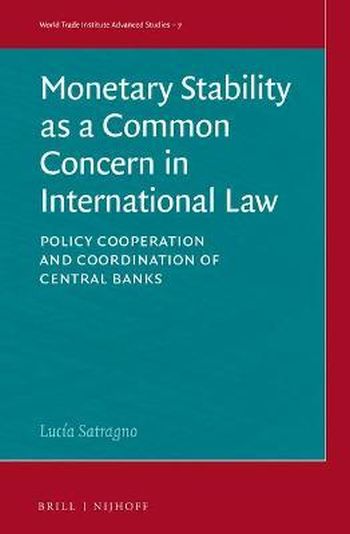
Monetary Stability as a Common Concern in International Law convincingly argues that monetary stability should be recognised as a Common Concern of Humankind. It also claims that international monetary reform is needed and it provides a template for reform based on the theoretical foundations of the emerging doctrine of Common Concern.